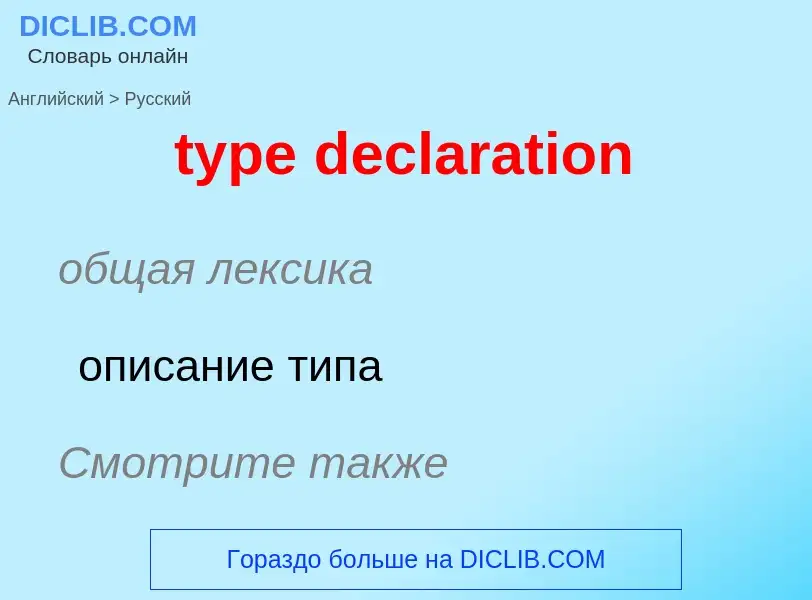Μετάφραση και ανάλυση λέξεων από την τεχνητή νοημοσύνη ChatGPT
Σε αυτήν τη σελίδα μπορείτε να λάβετε μια λεπτομερή ανάλυση μιας λέξης ή μιας φράσης, η οποία δημιουργήθηκε χρησιμοποιώντας το ChatGPT, την καλύτερη τεχνολογία τεχνητής νοημοσύνης μέχρι σήμερα:
- πώς χρησιμοποιείται η λέξη
- συχνότητα χρήσης
- χρησιμοποιείται πιο συχνά στον προφορικό ή γραπτό λόγο
- επιλογές μετάφρασης λέξεων
- παραδείγματα χρήσης (πολλές φράσεις με μετάφραση)
- ετυμολογία
type declaration - translation to Αγγλικά
Ορισμός
Βικιπαίδεια
In computer programming, a declaration is a language construct specifying identifier properties: it declares a word's (identifier's) meaning. Declarations are most commonly used for functions, variables, constants, and classes, but can also be used for other entities such as enumerations and type definitions. Beyond the name (the identifier itself) and the kind of entity (function, variable, etc.), declarations typically specify the data type (for variables and constants), or the type signature (for functions); types may also include dimensions, such as for arrays. A declaration is used to announce the existence of the entity to the compiler; this is important in those strongly typed languages that require functions, variables, and constants, and their types to be specified with a declaration before use, and is used in forward declaration. The term "declaration" is frequently contrasted with the term "definition", but meaning and usage varies significantly between languages; see below.
Declarations are particularly prominent in languages in the ALGOL tradition, including the BCPL family, most prominently C and C++, and also Pascal. Java uses the term "declaration", though Java does not require separate declarations and definitions.

